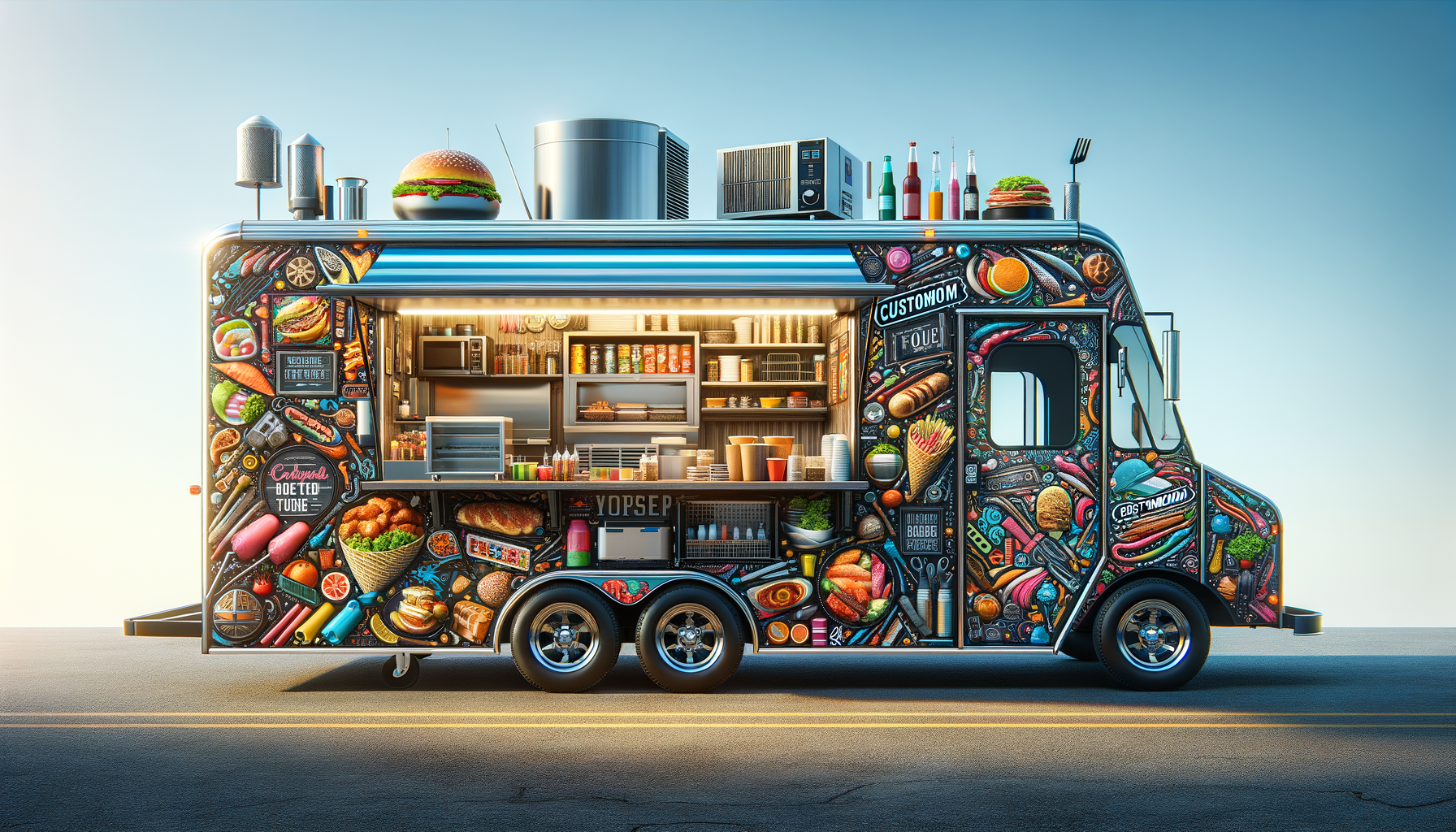
Building a Mobile Food Setup: Custom Food Trailer
Introduction to Custom Food Trailers
The world of mobile food services has grown exponentially in recent years, offering culinary entrepreneurs a unique platform to showcase their creativity and connect with a diverse customer base. Custom food trailers have become a cornerstone of this movement, providing a flexible and dynamic solution for those looking to enter the food industry without the overhead of a traditional brick-and-mortar establishment. By customizing a food trailer, vendors can tailor every aspect of their operation to meet specific needs, from the type of cuisine they offer to the geographic areas they wish to serve. This adaptability not only enhances the operational efficiency but also allows for a personalized customer experience that can set a business apart in a competitive market.
Designing the Perfect Layout
One of the most critical aspects of a custom food trailer is its layout. The design process involves careful planning to ensure that the space is utilized effectively, balancing both functionality and comfort. Key considerations include the type of equipment needed, the workflow of food preparation, and the customer service area. A well-thought-out layout can significantly enhance productivity by minimizing unnecessary movement and optimizing the cooking process. For instance, the placement of appliances such as grills, fryers, and refrigerators should facilitate a seamless flow from preparation to serving. Additionally, the design should consider ventilation and safety features to ensure a pleasant and secure working environment.
- Efficient use of space to accommodate necessary equipment
- Strategic placement of appliances for optimal workflow
- Incorporation of safety and ventilation features
Choosing the Right Equipment
Equipping a custom food trailer is an investment that requires thoughtful selection to match the specific culinary offerings. The choice of equipment will depend largely on the menu, with different cuisines requiring specialized tools. For example, a coffee trailer might prioritize high-quality espresso machines and grinders, while a taco trailer would benefit from griddles and warming stations. It’s essential to select equipment that is durable, energy-efficient, and easy to maintain, as these factors will affect long-term operational costs and reliability. Investing in high-quality equipment can also enhance the quality of the food served, contributing to customer satisfaction and repeat business.
- Consideration of menu-specific equipment needs
- Importance of durability and energy efficiency
- Impact on food quality and customer satisfaction
Understanding Regulatory Requirements
Operating a custom food trailer involves navigating a complex landscape of regulatory requirements. These regulations can vary significantly depending on the location, covering aspects such as health and safety standards, permits, and zoning laws. It’s crucial for food trailer operators to familiarize themselves with these regulations to ensure compliance and avoid potential legal issues. This may involve obtaining specific licenses, adhering to food safety protocols, and ensuring that the trailer meets all health inspection standards. Staying informed about regulatory changes and maintaining open communication with local authorities can help operators manage these requirements effectively.
- Awareness of location-specific regulations
- Compliance with health and safety standards
- Importance of licenses and permits
Marketing and Branding Your Food Trailer
In a competitive market, effective marketing and branding are essential for the success of a custom food trailer. Establishing a strong brand identity helps attract and retain customers, creating a loyal following that can drive business growth. This involves developing a unique and appealing visual design for the trailer, crafting a memorable brand name, and engaging with customers through social media and other marketing channels. Additionally, offering promotions, participating in local events, and collaborating with other businesses can enhance visibility and build a positive reputation. A well-executed marketing strategy not only increases customer engagement but also establishes the food trailer as a recognized and respected entity in the community.
- Development of a strong brand identity
- Utilization of social media and marketing channels
- Engagement through promotions and collaborations
Conclusion: The Path to Success with a Custom Food Trailer
Embarking on the journey of operating a custom food trailer offers a unique opportunity to combine culinary passion with entrepreneurial spirit. By focusing on key elements such as layout design, equipment selection, regulatory compliance, and marketing strategies, food trailer operators can create a successful and sustainable business. The flexibility and personalization offered by custom food trailers allow vendors to adapt to changing market trends and customer preferences, ensuring long-term success in the dynamic world of mobile food services. With careful planning and execution, a custom food trailer can become a beloved fixture in any community, delighting customers with exceptional food and service.


